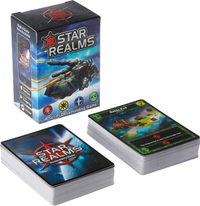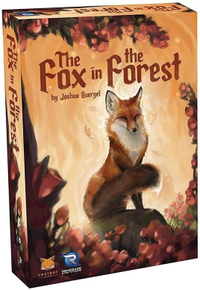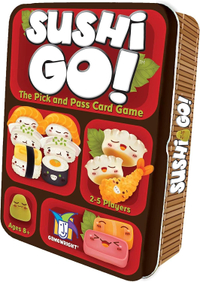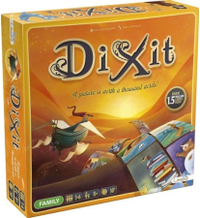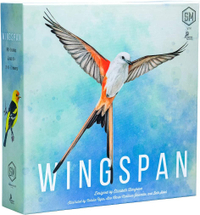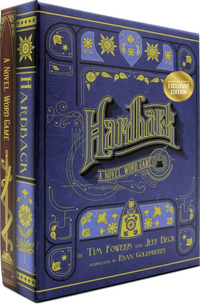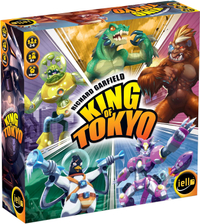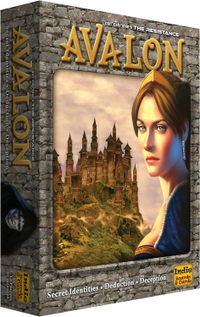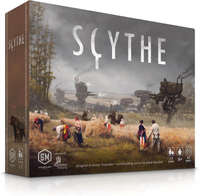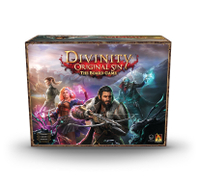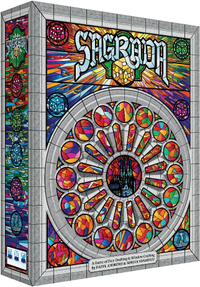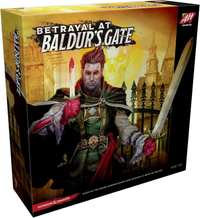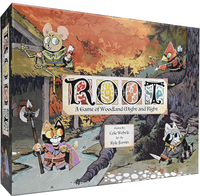The best board games to play right now
There's never been a better time to love tabletop gaming.
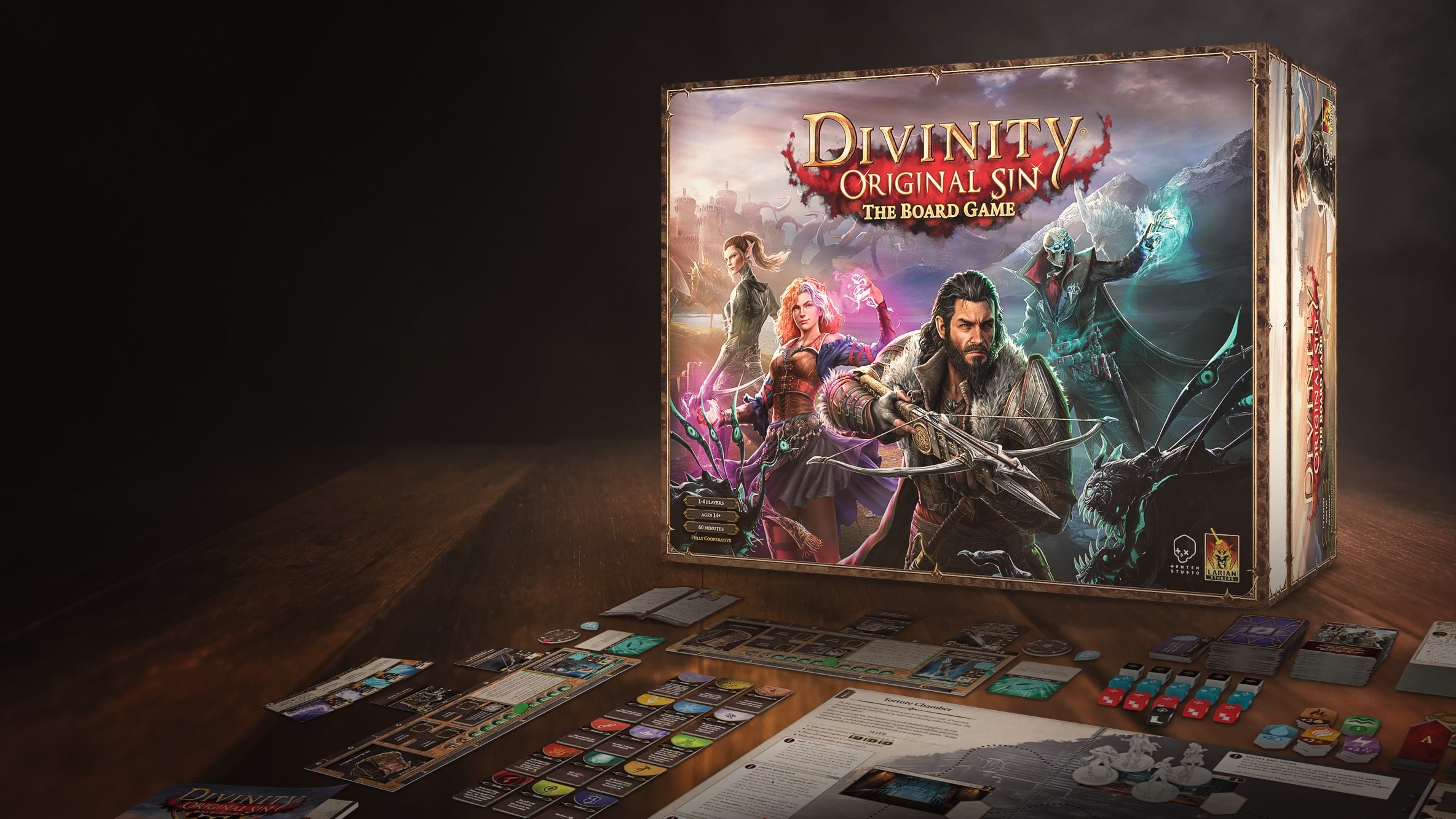
The wide world of board games is intimidating, and even the best board games might not seem so great if they take hours to understand or require more people than you have. As PC gamers we’re used to doing things ourselves—whether it’s modding or simply building our own rig—but a helping hand with advice is just as critical. So we’ve put our heads together to create a list of the best board games, geared towards what we like as PC gamers.
With a flood of new choices each year crowding the field, it’s harder every day to tell what’s new and good, and what’s just new. Is that cool theme on the box just window dressing? Does what looks like a simple game actually take hours to learn? After all, it’s hard enough to get your buddies together in the first place, and nothing wastes that effort more than a difficult to understand, poorly balanced, or just plain boring board game.
When making this list, we weighed our choices based on how easy to learn the game is, how great they are to play with friends, how much replay value they have, and how, well, great they are.
Best 2 player board games
Star Realms | $19 at Amazon
A simple-but-deep card game from hall of fame Magic: the Gathering players who wanted a fast playing and portable game to play between tournament rounds. As a deck builder, you’ll fine tune your starting deck of cards by drafting new cards into it and building a strategy to attack and defeat your opponent. Your cards represent starships and starbases in your budding space empire, giving you resources to draft new cards, combat strength to attack, and all manner of special powers and synergies. Star Realms strikes an excellent balance between accessible-and-fast games and deep strategy, and is a great pick for both veterans and new friends alike.
The Fox in the Forest | $14.30 at Amazon
The Fox in the Forest is a trick-taking card game—where you play a series of hands, trying to win each hand with the best card played in that hand. The Fox in the Forest goes with a fairy-tale theme, and uses it to add to the classic card game format by introducing character cards with special abilities that can shake up hands. Cards like the Swan can let you lead the next trick even if you lost the previous one, or the Witch who can steal a trick by surprise. You also have to be careful, because winning too many tricks over your opponent in a hand will lose you all your points for that hand. Between the scoring system and the spin on card powers, The Fox in the Forest is excellently balanced and a replayable dream.
Best beginner board games
Sushi Go | $12 on Amazon
Introducing newer and younger players to board games is a lot less daunting with Sushi Go. Between the adorable art and streamlined rules, you can have a rookie up to speed and playing in just a couple minutes. Each round you’ll have to decide which kind of sushi you’re trying to assemble, and then figure out what cards you want to keep, and which ones to pass on—and with the scoring system and the side objective of collecting the most pudding cards, there’s enough going on for strategy and thoughtful plays.
Dixit | $40 on Amazon
Dixit challenges you with incredibly simple rules: players are dealt cards with pictures on them, one player is the storyteller and describes their card with a sentence. Everyone else must pick the card they have that most represents the description. Then, the cards chosen are shuffled up and each player (other than the storyteller) must try to correctly guess the storyteller’s card. But here’s what really makes Dixit work so well: the surreal and evocative art from French artist Marie Cardouat. From paper people walking on a windy day to a top hatted man climbing around an MC Escher castle, Dixit’s art elevates the game to a classic that’s accessible for everyone. Creative, silly, and engaging, Dixit is the right game for imaginative types—or just to find out which of your friends are the worst at communication.
Wingspan | $52 on Amazon
Wingspan is a step up in complexity, but in a way that’s easy to follow. It’s a perfect choice for anyone who wants to start to learn more intricate games without being totally overwhelmed. In each game, you’ll try to build the best wildlife preserve for birds, acquiring food tokens, bird eggs, and bird cards to earn points for the end of the game. Choosing how to make your wildlife preserve feels a lot like assembling an engine from a selection of parts, and it’s satisfying watching your turns get more and more productive as your bird-machine is refined.
Best board games under $50
Hardback | $35 on Barnes & Noble
Starting off with just a few basic consonants and vowels, you have to stock your deck with better letters from different genres of literature—each with their own powers. Each hand you play from your deck will use the abilities of your cards to help get better cards, win you victory points, and lots of other options. But with each hand, you also have to use the letter on each card to spell a word, or you won’t be able to play your hand. It’s devilish when you make a mistake (or simply can’t spell), but thanks to the rule that lets you create wild cards to help you out, you can still hang with the pack even if you’re not the dictionary of your friend group.
King of Tokyo | $35 on Amazon
Choosing your favorite giant monster from the King of Tokyo roster is just the start, because each turn you’ll push your monster's luck by rolling dice to grab yourself victory points, attack, heal yourself up, or farm up energy tokens: energy tokens that you can use to upgrade yourself with all kinds of wacky new powers. King of Tokyo is a battle royale where whoever is on top of Tokyo gets bonuses each turn—but is also automatically the target of everyone else's attacks, so your play style will evolve as your monster does by purchasing upgrade cards that push you towards one strategy or another. It’s a classic accessible game, which makes sense with veteran designed and Magic: the Gathering creator Richard Garfield behind it.
Best party board games
The Resistance: Avalon | $24.80 on Amazon
In the vein of classic game Werewolf, or videogame Among Us, The Resistance: Avalon is social deduction boiled down to the essentials for everyone, where you are either a loyal member of King Arthur’s court or a traitorous Minion of Mordred the betrayer, assigned in secret. Each round sees you nominating people to go on a mission, who then will play pass/fail cards to determine whether King Arthur’s court is successful or not. The only way to figure out who is an ally or enemy is to follow patterns and make educated guesses. It also includes special optional role cards that give simple abilities to players who get them, so you can mix up repeat games.
Wits & Wagers | $44.85 on Amazon
The simplest of all board games is the trivia game, but Wits & Wagers has refined the formula by making knowing the answer only a part of the game. When questions are asked, each player writes their answer on a card, and those cards are laid on a betting mat with odds for each slot. Then, players can bet their chips on who they think got the right answer (or the closest to the right answer), whether they’re confident in themselves or think they know somebody else is the wise-guy in the group. It’s brilliant, and perfect for bridging the gap between people who aren’t great at trivia and those who are basically a living and breathing Wikipedia.
Best heavy board games
Scythe | $89 on Amazon
With each player taking on a faction with their own powers and strengths, you’ll build up resources, construct things, and try to accomplish your hidden objective. Your empire functions very much like an engine you’re tuning, and upgrades you can purchase for it will make your actions more efficient, providing more resources or enhancing character abilities. While the game is competitive, there’s no player elimination, so you won’t be stuck watching everyone else have fun if you make some mistakes. Scythe is an intricate and complex game, but well worth the effort to learn for the depth and replay value it’s packed with.
Divinity: Original Sin | $150 on Larian official site
In Divinity: Original Sin you’ll pick a hero and embark on journeys throughout Larian’s original world, making decisions that will change the path you take and completing missions, fighting monsters, and improving your character. Running like a streamlined RPG with no gamemaster required, Divinity: Original Sin is perfect for people who want more of a gamified storytelling experience than a full-on RPG, and who enjoy the campaign style—where you come back to pick up your progress the next time you play. Find out more by reading our full impressions of the game.
The very best board games
Sagrada | $37.40 on Amazon
Sagrada is one of the most satisfying puzzle games around. Each round you’ll roll dice of random colors, then draft them to place on your board—trying to fill the board up completely while obeying the plans you selected at the start of the game. While some plans may seem easy at first, restrictions like being unable to have the same colors or numbers adjacent to each other make finishing your window more and more of a challenge as the game closes out. Sagrada is sublime to play, and makes it easy to adjust the difficulty by having players select more or less complex window patterns to attempt.
Betrayal at Baldur's Gate | $50 on Amazon
Grab your favorite character and explore the alleys and catacombs of the fantasy city of Baldur’s Gate to try to solve the mystery of who (or what) is assaulting the city. Each new area is a random tile you add, building your own version of the city, gathering items, and facing challenges, until you finally uncover the source of what’s plaguing Baldur’s Gate, and reveal which member of the party is actually a traitor. Unusually for a game with social deduction, the traitor doesn’t work against you the entire game. Instead it's only when the plot is finally unveiled that they’re selected and turn on you for the final challenge. With fifty different scenarios, it will take a while before you see all the different schemes (and probably even longer to beat them, some are pretty hard).
Root | $60 on Leder Games
Couching open warfare and rebellion in the guise of cutesy forest creatures is clever, but even more clever is how Root makes each of its four factions work against each other. Unlike similar games in this vein, each faction in Root has its own separate goals and objectives—like the Marquise de Cat who wants to retain control of her territory, or the Vagabond, who just wants to be famous. Root is exceptionally fun to play, especially since each faction plays very differently from the others, so you can find the one you like the most or simply change it up every time you play.
Keep up to date with the most important stories and the best deals, as picked by the PC Gamer team.

Sarah is a contributor for PC Gamer, formerly of TechRadar Gaming. With five years of experience writing freelance for several publications, she's covered every genre imaginable and probably a few she made up. She has a passion for diversity and the way different genres can be sandboxes for creativity and emergent storytelling, and loves worldbuilding. With thousands of hours in League of Legends, Overwatch, Minecraft, and countless survival, strategy, roguelike, and RPG entries, she still finds time for offline hobbies like tabletop RPGs, wargaming, miniatures painting, and hockey.
